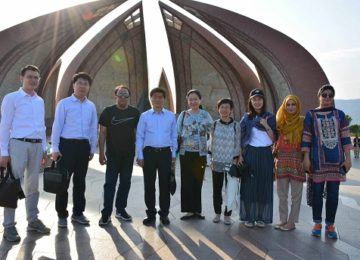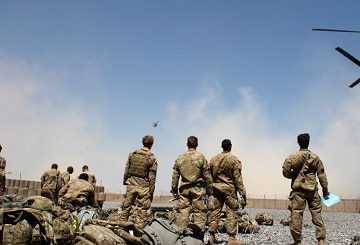The Pakistani government has intensified its operations to deport foreign nationals residing illegally in the country, with a particular focus on Afghan residents. These efforts are ongoing across Islamabad, Rawalpindi, various districts of Punjab, and Sindh.
As of April 1, 2025, a total of 944 Afghan families, consisting of 6,700 individuals (2,874 men, 1,755 women, and 2,071 children), have been deported. This brings the total number of repatriated Afghans to 469,159 people, comprising 70,494 families, between September 17, 2023, and March 31, 2025.
According to Aaj Daily (a news outlet based in Peshawar), in the last 24 hours, 2,772 illegal residents have been brought to holding centers, while 2,810 individuals were already present in these centers. With the assistance of relevant institutions, 1,336 individuals have been deported.
Dawn News has reported that over 300 Afghans were sent to their homes from Karachi. Sindh Senior Minister Sharjeel Inam Memon said that those deported included 79 children, 37 women, and 191 men.
In Rawalpindi, police is actively cracking down on illegal foreigners and Afghan migrants. Since April 1, 353 Afghans have been taken into custody and transferred to holding centers. 119 Afghan nationals with Afghan Citizen Cards (ACC) were detained, and 234 were detained for lack of valid documents.
No arrests have been made for visa expiry so far.
It has been decided that those Afghan individuals involved in any criminal activity will face deportation, which also applies to their family members.
Amid the ongoing deportation drive, concerns have emerged over the separation of family members. In some cases, one family member remains in Pakistan while others are detained or deported.
According to a report by Dawn, the son-in-law of a man named Zaeenuddin has been placed in a detention center in Karachi, while his daughter remains outside. Zaeenuddin has appealed to authorities, requesting either the release of his son-in-law or the inclusion of his daughter in the deportation process, so the couple can return to Afghanistan together.
Teams from NADRA and the Federal Investigation Agency (FIA) are actively involved in the verification and biometric scanning of individuals. These procedures are essential for the preparation of official manifest documents, which include detailed information such as the refugees’ names, identification numbers, photographs, age, gender, and the designated border crossing through which they will re-enter Afghanistan.
Once the manifest is finalized, individuals are transported via designated buses to the respective border points. There, officials from the United Nations High Commissioner for Refugees (UNHCR) and the Afghan government are present to oversee and facilitate the repatriation process.
AUTHOR

The author has Bachelors in International Relations from NUML Islamabad. She is currently working as a research assistant in CRSS. Her interests are human rights & peace and Security








